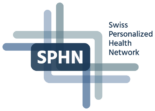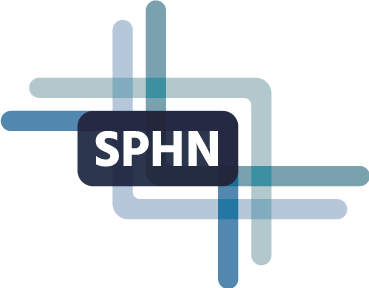SOCIBP: Swiss Molecular Pathology and Tumor Immunology Breakthrough Platform
Project consortium: Prof. Mark Rubin (UniBe/Inselspital), Prof. Gunnar Rätsch (ETHZ), Dr. med. Thomas McKee (HUG), Prof. Dr. med. Laurence de Leval (CHUV), Prof. Holger Moch (USZ), Prof. George Coukos (EPFL).
Main achievements
The clinical cancer genomics landscape in Switzerland is highly diverse - a broad range of sequencing assays and data processing strategies are used across Swiss hospitals. SOCIBP has filled a major gap in oncology research in Switzerland by building the computational infrastructure necessary to streamline this diverse data into one easy-to-use resource for researchers and hospitals in Switzerland.
The main achievements of this infrastructure development project are
- the establishment of portable and reproducible bioinformatics tools to analyze heterogeneous genomic data generated for clinical care in a standardized and scalable manner and
- the establishment of a national cBioportal instance which allows clinicians and researchers to scan genomic data from all across Switzerland to help populate or design clinical trials, or develop new hypotheses. The user interface of cBioportal enables data queries without the need of computational expertise, allowing researchers of all backgrounds to interactively visualize and analyze the data. Access to the portal is available to all qualified researchers in Switzerland via a controlled data access protocol requiring an agreement for data use and approval from the SOCIBP board.
An overview of the available cohorts as well as a link to the data access request form can be found under https://socibp-cbioportal.leomed.ethz.ch/.
Reusable infrastructure and datasets
SOCIBP Legal Documents
SOCIBP has established the ethical and legal framework required to receive and process cancer genomics data from all Swiss university hospitals, namely the Insel University Hospital Bern, Centre Hospitalier Universitaire Vaudois (CHUV), Hôpitaux universitaires de Genève (HUG), University Hospital Basel (USB), University Hospital Zurich (USZ), the non-university hospital Kantonsspital Baselland (Liestal) as well as several University departments, including the Institute of Pathology and Department of Biomedical Research at the University of Bern, the Institute of Pathology at the University of Zurich (UZH) and ETH Zurich. This legal framework includes the joint Data Transfer and Use Agreement (DTUA) established by SOCIBP and the SPHN BioMedIT Infrastructure Data Transfer and Processing Agreement (DTPA) established by the SPHN. This resource can serve as a template for future SPHN projects which require transfer and processing of data from aforementioned data providers.
Available resources
These documents are available upon request (Prof. Mark Rubin).
Standardized Dataset Specifications and data transfer SOP
SOCIBP has defined the ontology concepts for a minimal set of clinical metadata required by the project. The SOCIBP data transfer SOP describes the standard operating procedures for SOCIBP Data Providers, including data inclusion criteria, naming convention for SOCIBP sample IDs and specifications of file and sample metadata sheets. The SOCIBP SOP for data providers along with the ontology definitions can be re-used and extended in future SPHN projects which are focused on cancer genomics.
Available resources
These resources are fully version controlled and managed via the DCC Git instance (https://git.dcc.sib.swiss/socibp/standard-operating-procedures).
Access is available upon request (Prof. Mark Rubin).
SOCIBP cancer genomics analysis modules
SOCIBP has developed analysis modules to analyze genomic data from a variety of sequencing assays used across Switzerland, including tumor only amplicon sequencing panels (most common) to whole exome sequencing (least common) as well as RNA sequencing data. The implementation of the SOCIBP analysis modules in Nextflow using Singularity containers allows deployment of the modules in a time-efficient and infrastructure-independent manner and ensures their reproducibility. The analysis modules are in line with the best practices in genomic data analysis at the time of development. The modules can be used unlimitedly, however, due to the fast-changing nature of the cancer genomics field, latest software developments should be monitored and the modules should be adapted and extended accordingly to keep the infrastructure at the cutting edge.
Available resources
All code is fully version controlled and managed via the DCC Git instance (see Further information below)
SOCIBP datasets and cBioPortal
The datasets generated by SOCIBP are available in two major data streams. First, standardized and unified genomic data (e.g. VCF and BAM file format) is available as “raw data” in BioMedIT. These formats are GA4GH (Global Alliance for Genomics and Health) standards, making them interoperable and reusable on a national as well as international level. Second, we have an active national instance of cBioportal that allows all qualified users to find and visualize data without the need of any expertise in computational biology. This portal is the standard for clinical and lab-based investigators and will continue to be used in tumor boards as a means of comparing patient data to larger data sets. We anticipate that as new drugs and therapies are developed, the national cBioportal will allow clinicians and researchers to query genomic data across all of Switzerland to help populate or design clinical trials, or develop new hypotheses to better understand cancer. For data access, we have established a governance strategy that allows us on the one hand to grant access to individual data sets and protect personal sensitive data, but also share de-identified data with other researchers in Switzerland. Using SWITCH EduID as an identity provider, we directly use Swiss infrastructure for login federation. Any Swiss researcher can register for an account and gain access to lowest security tier data, such as visualization of data in the SOCIBP cBioPortal that originates from other public studies like The Cancer Genome Atlas. To gain access to mid-security non-public, yet de-identified data generated within SOCIBP and visualized in cBioPortal, users can apply via a web-form. During the application process, the researchers are required to strict data sharing and use regulations. Each individual application is evaluated and decided by the SOCIBP board.
Available resources
All code is fully version controlled and managed via the DCC Git instance (portal deployment: https://git.dcc.sib.swiss/socibp/cbioportal; data ingestions: https://git.dcc.sib.swiss/socibp/cbioportal-data-prep).
An overview of all the SOCIBP cohorts on the national cBioportal and the data access request form are available on https://socibp-cbioportal.leomed.ethz.ch/.
Further information
DCC Git instance
- https://git.dcc.sib.swiss/socibp/iontorrent-pipeit;
- https://git.dcc.sib.swiss/socibp/nextflow-tumor_only;
- https://git.dcc.sib.swiss/socibp/bcbio-wes-preproc;
- https://git.dcc.sib.swiss/socibp/wes-postproc;
- https://git.dcc.sib.swiss/socibp/iontorrent-rna-fusion;
- https://git.dcc.sib.swiss/socibp/nextflow-rna_seq;
- https://git.dcc.sib.swiss/socibp/rna-fusion;
- https://git.dcc.sib.swiss/socibp/spladder).
Watch the SPHN webinar
References on Pubmed
- Rodriguez, A., Gallon, J., Akhoundova, D., Maletti, S., Ferguson, A., Cyrta, J., Amstutz, U., Garofoli, A., Paradiso, V., Tomlins, S. A., Hewer, E., Genitsch, V., Fleischmann, A., Rushing, E. J., Grobholz, R., Fischer, I., Jochum, W, Cathomas, G., Bubendorf, L., Moch, H., Ng, C. K. Y., Gillessen Sommer, S., Piscuoglio, S. & Rubin, M. A.. Alterations in homologous recombination repair genes in prostate cancer brain metastases. Nat Commun 13, 2400 (2022). https://doi.org/10.1038/s41467-022-30003-5.
- Kashani E., Schnidrig D., Gheinani A. H., Ninck M. S., Zens P., Maragkou T., Baumgartner U., Schucht P., Rätsch G., Rubin M. A., Berezowska S., Ng C. K. Y., Vassella E. Integrated longitudinal analysis of glioblastomas with long-term relapse interval revealed upregulation of the Tumor Growth Factor β signaling pathway in the recurrent tumor. Submitted. Preprint available at Research Square https://doi.org/10.21203/rs.3.rs-1350734/v1.
- Calabrese, C., Davidson, N. R., Demircioglu, D., Fonseca, N. A., He, Y., Kahles, A., Lehmann, K. van, Liu, F., Shiraishi, Y., Soulette, C. M., Urban, L., Greger, L., Li, S., Liu, D., Perry, M. D., Xiang, Q., Zhang, F., Zhang, J., Bailey, P., … Brooks, A. N.. Genomic basis for RNA alterations in cancer. Nature, 578(7793), 129–136 (2020). https://doi.org/10.1038/S41586-020-1970-0.
- Schnidrig D.; Garofoli A.; Benjak A.; Rätsch G.; Rubin M. A.; SOCIBP consortium; Piscuoglio S. & Ng, C. K. Y. PipeIT2: A tumor-only somatic variant calling workflow for Molecular Diagnostic Ion Torrent sequencing data. Submitted. Preprint available at bioRxiv https://doi.org/10.1101/2022.06.28.497937.
Disclaimer: The contents on this website are intended as a general source of information and have been provided by the project PIs. The SPHN Management Office is not responsible for its accuracy, validity, or completeness.

